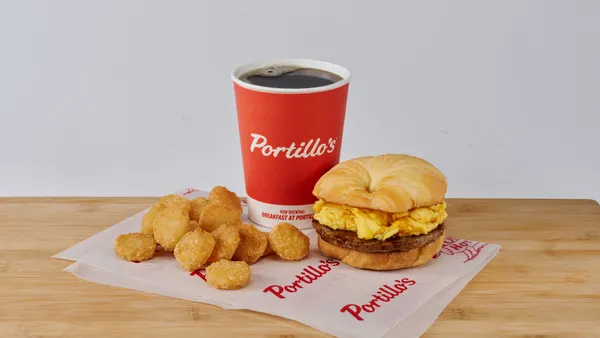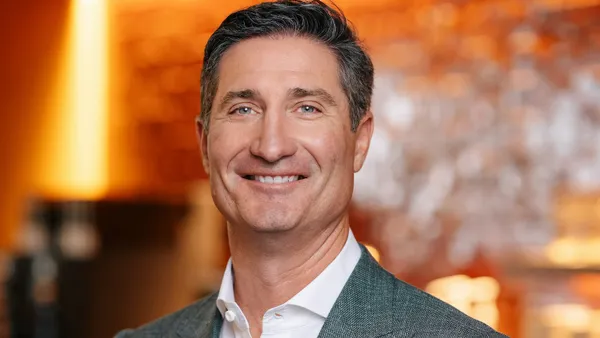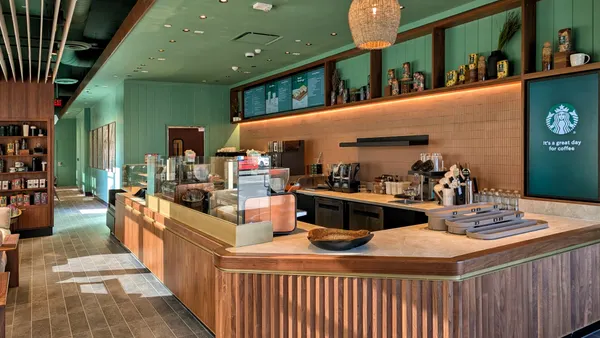Dive Brief:
- New York-based fast casual chain Dig is testing reusable bowls as part of an effort to create a more sustainable closed-loop system, reports Nation's Restaurant News.
- For $3 per month via the Canteen by Dig mobile app, customers who dine at the Washington Square Park location can rent and return containers through the app. The user must show the app screen to the cashier at checkout to participate.
- The customer then returns the container, which is made from black melamine and a plastic lid, to the store on their next visit. The bowls are then cleaned and returned to the store's inventory.
Dive Insight:
Dig's pilot taps into consumers' desire to make more sustainable choices in their food purchasing habits. It's a savvy move, since 88% of consumers are looking for environmentally conscious brands, according to a Futerra survey. Not only does Dig's pilot provide a reusable container, the material is free from PFAS, or "forever chemicalds" that don't degrade quickly.
Consumers are showing growing concern about plastic use and packaging waste, leading a number of companies to search for different options. At Starbucks' London Gatwick airport location, customers can either pay a six-cent surcharge for a disposable cup or opt for a free reusable cup. Four café locations in Boulder, Colorado, are participating in a stainless-steel reusable mug program featuring drop-off kiosks set up by Vessel Works. Customers sign up for a mobile app and receive a charge if they don't return the mug within five days. Just Salad is also offering reusable bowls in New York City, and received a regional WasteWise award from the EPA in 2017.
Despite the altruistic intent behind Dig's pilot, it's success may depend on consumers' willingness or ability to return the containers. Because these "old fashioned milkman" pilots are still relatively new, data is scarce regarding the success rate for returning reusable items. Unlike Dig's program, however, Vessel's threat of a surcharge may spur consumers into action in lieu of letting the items accumulate at their home or office.
Restaurants are focusing storewide on finding ways to improve sustainability. McDonald's is piloting "green concept" stores in Canada, for example, and served edible packaging during a 10-day pilot at one of its Germany locations.
To help consumers identify brands' sustainability efforts, Yelp is now collecting information from reviewers about things like reusable cup discounts and compostable packaging. With plans to make this information available to the public by next year, the possibility of losing business over a bad sustainability score could put more pressure on restaurants to offer reusable container programs or at the very least discounts for customers who bring their own containers.













